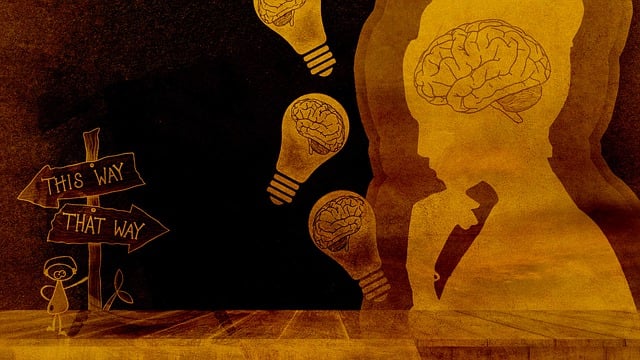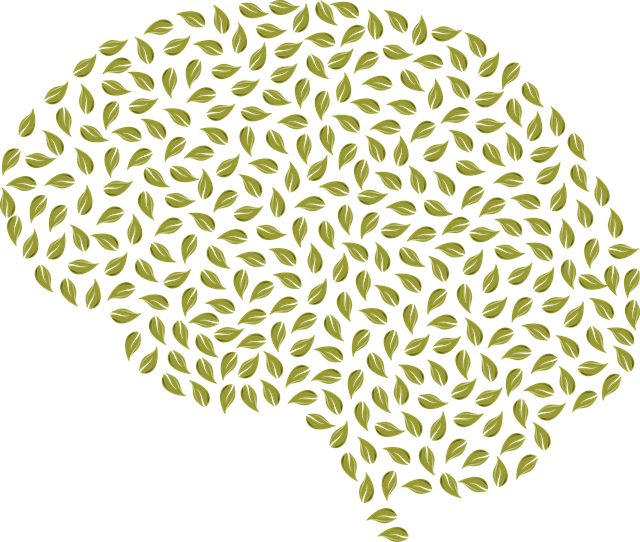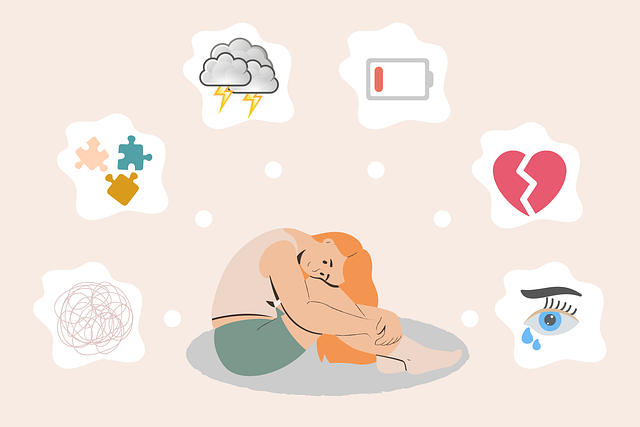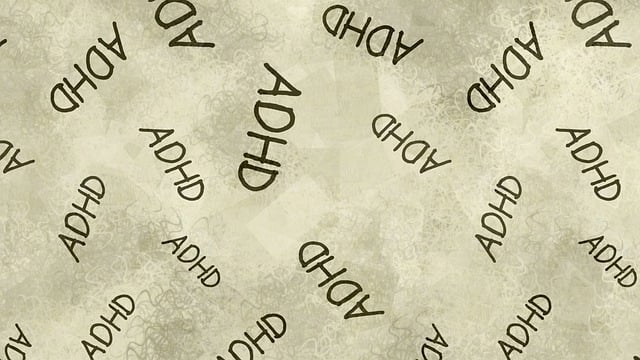Lafayette Anger Management Therapy (LAMT) leverages the Resilience Factor (RFM) – comprising Recuperability, Fortitude, and Mobility – to build resilience through tailored exercises. By integrating cognitive behavioral therapy, mindfulness, and emotional regulation techniques, LAMT empowers individuals to manage anger, improve stress coping, and enhance relationships. This structured approach, combined with public awareness campaigns, promotes long-term mental well-being and healthier communities.
“Discover the power of resilience through RFM (Recovery, Flexibility, and Mastery) exercises, a revolutionary approach to emotional well-being. This comprehensive guide explores how Lafayette Anger Management Therapy integrates RFM to enhance emotional regulation. Learn about tailored resilience-building strategies, from design to clinical implementation, offering a step-by-step framework. Understand the long-term impact of these programs and their ability to empower individuals. Uncover why Lafayette Anger Management Therapy stands out as a game-changer in fostering resilience.”
- Understanding RFM and its Role in Resilience Building
- The Impact of Lafayette Anger Management Therapy on Emotional Regulation
- Designing Effective Resilience-Building Exercises
- Implementing RFM in Clinical Practice: Step-by-Step Guide
- Measuring Success and Long-Term Effects of RFM Programs
Understanding RFM and its Role in Resilience Building

Resilience is a powerful tool that enables individuals to navigate life’s challenges with strength and adaptability. Understanding Resilience Factor (RFM) is a critical step in building this resilience, especially for those seeking professional support like Lafayette Anger Management Therapy. RFM focuses on three key aspects: Recuperability, Fortitude, and Mobility, which collectively contribute to an individual’s ability to bounce back from adversity.
Recuperability refers to the speed at which one can recover from setbacks and stress, while Fortitude is the inner strength that helps face challenges head-on. Mobility involves adapting to change and moving past difficult situations. By integrating exercises that enhance these RFM dimensions, individuals can develop a robust resilience framework. This approach not only complements Lafayette Anger Management Therapy but also encourages effective stress management, enhances social skills training, and provides crisis intervention guidance, ultimately fostering a more resilient and balanced lifestyle.
The Impact of Lafayette Anger Management Therapy on Emotional Regulation

The Lafayette Anger Management Therapy (LAMT) has had a profound impact on individuals seeking to improve their emotional regulation skills, offering a unique and effective approach to anger-related issues. This therapy focuses on empowering clients with strategies to manage intense emotions, especially anger, which is often a secondary symptom of underlying conditions like trauma or depression. By participating in LAMT, individuals learn valuable self-awareness exercises that help them understand the triggers and patterns associated with their anger.
One of the key benefits is its ability to enhance coping mechanisms, enabling clients to respond rather than react to stressful situations. This not only improves personal relationships but also contributes to overall mental well-being. Moreover, LAMT provides a safe space for individuals to process and release accumulated trauma, thereby reducing the risk of depression prevention and promoting resilience in the face of challenging life circumstances.
Designing Effective Resilience-Building Exercises

Effective resilience-building exercises are designed to empower individuals with coping strategies and a sense of self-efficacy. At Lafayette Anger Management Therapy, we believe in tailoring these sessions to meet the unique needs of each client. A well-structured exercise should challenge participants while providing a safe space for exploration. Incorporating elements from cognitive behavioral therapy, mindfulness practices, and emotional regulation techniques can significantly enhance its impact. For instance, role-playing scenarios can help individuals navigate high-stress situations constructively, fostering better decision-making skills.
Moreover, public awareness campaigns around mental health can further support the development of resilience. Educating communities about burnout prevention and self-esteem improvement strategies enables everyone to contribute to a more resilient society. These exercises should be regularly updated and adapted based on emerging research and feedback from participants to ensure their effectiveness over time.
Implementing RFM in Clinical Practice: Step-by-Step Guide

Implementing RFM (Resilience, Flexibility, and Mastery) in clinical practice involves a structured approach that can significantly enhance patient outcomes, particularly for those seeking Lafayette Anger Management Therapy. Here’s a step-by-step guide to integrate RFM into your therapeutic framework:
1. Assess Client Readiness: Begin by evaluating the client’s current level of resilience and their willingness to engage in RFM exercises. This step is crucial as it ensures that the interventions are tailored to individual needs, fostering better compliance and outcomes.
2. Educate Clients on RFM Principles: Explain the concept of RFM, highlighting its benefits in managing anger, improving coping strategies, and enhancing overall well-being. Emphasize how these exercises can provide tools for navigating challenging situations with greater ease. Incorporating elements from your Community Outreach Program Implementation can further reinforce this education.
3. Personalize Resilience Building Activities: Design a personalized plan incorporating various RFM techniques such as mindfulness practices, cognitive reframing, and problem-solving skills. Tailor these activities to address specific triggers and challenges faced by the client, promoting better emotional regulation and anxiety relief.
4. Gradual Exposure and Practice: Introduce RFM exercises gradually, allowing ample time for practice and reinforcement. Start with simpler scenarios and progressively move towards more complex situations. This step-by-step approach ensures clients build confidence and mastery over their responses, fostering a sense of accomplishment and empowerment.
Measuring Success and Long-Term Effects of RFM Programs

Measuring Success and assessing the long-term effects of RFM (Resilience and Emotional Intelligence) programs is a critical aspect of understanding their overall impact. Beyond immediate outcomes, such as improved emotional regulation and reduced reactivity, these initiatives often have profound, lasting implications for individuals and communities. Lafayette Anger Management Therapy, for instance, has reported significant success in helping clients develop more adaptive coping strategies, leading to better mental health and enhanced relationships.
Long-term studies into the effectiveness of RFM interventions, including Compassion Cultivation Practices, can reveal reduced rates of burnout among professionals and increased resilience in the face of adversity. Public Awareness Campaigns Development plays a crucial role in fostering widespread adoption of these practices, ensuring that more people have access to tools for navigating stress and trauma. By integrating such programs into educational systems and workplace environments, we can cultivate a culture of emotional intelligence and resilience, ultimately contributing to happier, healthier, and more productive societies.
The implementation of RFM, as illustrated by the success of Lafayette Anger Management Therapy, offers a powerful approach to resilience building. By designing and implementing effective exercises, professionals can empower individuals to navigate life’s challenges with greater emotional regulation. The step-by-step guide provided ensures clinical practicability, while measuring success and long-term effects allows for continuous improvement. Incorporating RFM into therapeutic practices has the potential to significantly enhance clients’ ability to cope, fostering a more resilient and balanced lifestyle.














